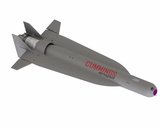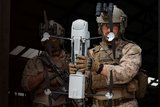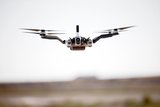What’s next for the Pentagon after the Replicator programme?
Although the Replicator initiative has made several accomplishments, there are still multiple gaps to plug across the US Department of Defense (DoD) and its services.
Kraken Sonar has signed a licensing agreement for underwater robotics technology with Fraunhofer Institute for Optronics, System Technologies and Image Exploitation (IOSB) in a move to further strengthen its IP portfolio, the company announced on 15 March.
Fraunhofer specialises in intellectual property and technology related to underwater robotics. The company's underwater sensor robotics programmes have culminated in the development of the DEDAVE Autonomous Underwater Vehicle (AUV).
Under the agreement, Kraken will license the DEDAVE software and hardware IP and technology for large AUVs and acquire the 6000m rated DEDAVE as a sensor and robotics technology demonstration platform. Kraken will also establish a long term technical co-operation programme with Fraunhofer for hydrodynamic control systems, mission planning and autonomy algorithms that can be deployed in Kraken's upcoming ThunderFish AUV programme.
Kraken plans to upgrade the DEDAVE with larger sensors, including its MINSAS 120 sonar. In order to support the larger payload, the size of the vehicle will be increased by around 30 percent. The integration of tunnel thrusters will also provide a hovering capability for target inspection and precision manoeuvring.
Thomas Rauschenbach, head of the advanced system technology branch of Fraunhofer IOSB said: 'Scientists and engineers at the Fraunhofer IOSB have been studying and developing underwater robots and data processing for sonar systems for many years. We are delighted to have found an industrial partner with significant expertise in both maritime sensor and robotics technology.'
David Shea, Kraken's VP engineering, said: 'Access to the DEDAVE IP, combined with our existing AUV IP portfolio, significantly reduces our development cost and lead-time and mitigates the technical risk for Kraken's underwater robotics. In addition, access to the DEDAVE prototype vehicle means we can start in-water testing as soon as possible, reducing our overall time to market and providing potential revenue generation to support our development programme.'

Although the Replicator initiative has made several accomplishments, there are still multiple gaps to plug across the US Department of Defense (DoD) and its services.

Cummings Aerospace presented its turbojet-powered Hellhound loitering munition at SOF Week 2025, offering a man-portable solution aligned with the US Army’s LASSO requirements.

PDW has revealed its Attritable Multirotor First Person View drone at SOF Week 2025, offering special operations forces a low-cost, rapidly deployable platform for strike and ISR missions, inspired by battlefield lessons from Ukraine.

Teledyne FLIR is highlighting the emerging requirements for 'recoverable and re-usable' loitering munitions across the contemporary operating environment during this week’s SOF Week conference in Tampa, Florida.

High-performance maritime industry player Kraken Technology Group, based in the UK, has used the SOF Week conference in Tampa, Florida this week to debut its K3 Scout uncrewed surface vessel (USV) to the North American market.

Red Cat and Palladyne AI recently conducted a cross-platform collaborative flight involving three diverse heterogeneous drones.